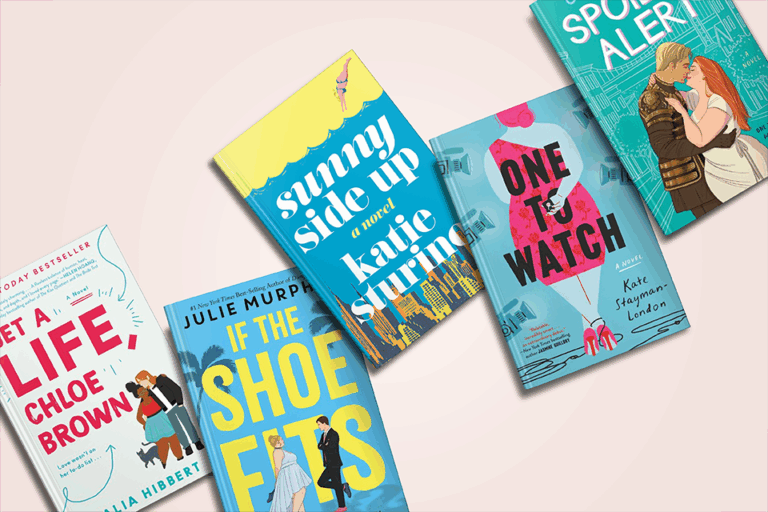“Write what you know,” the old adage goes. So it comes as no surprise that novelists often set their stories in the world of publishing. Of course, the best of the bunch can’t help but land a few clever jabs along the way — as evidenced by these wickedly entertaining reads.
Wickedly Entertaining Satire Books Set in the Publishing World
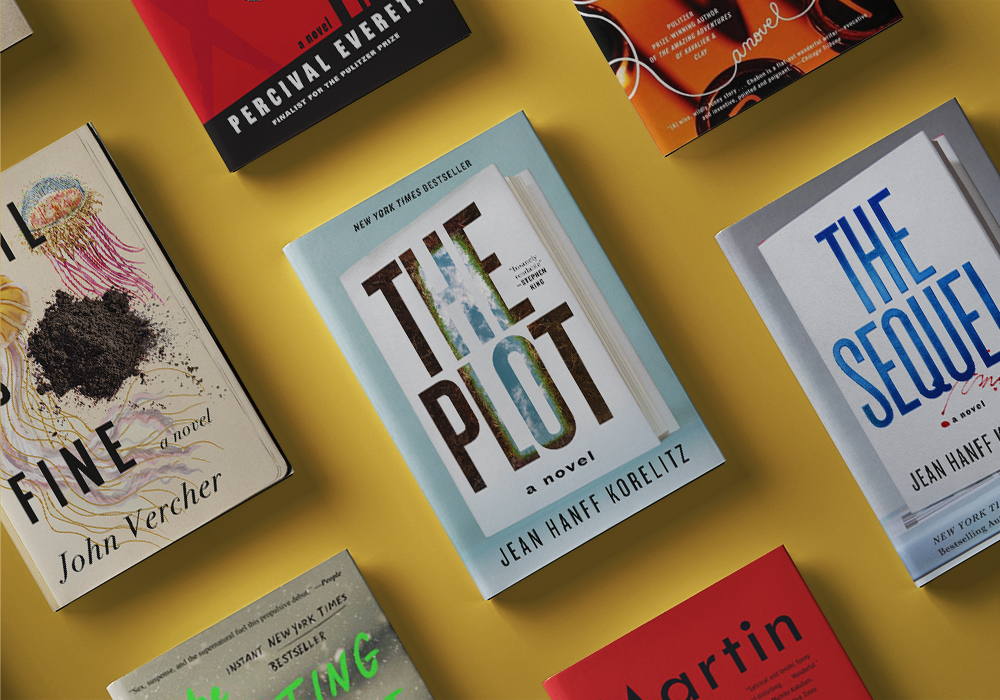
Biting and hilarious, the following satire books set in the publishing world will have you laughing (and wincing) with delight.
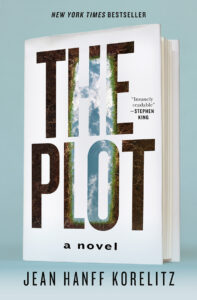
The Plot
By Jean Hanff Korelitz
Who owns an artistic idea? What are the ethics of taking someone else’s creative concept once they’re gone? Jacob Finch Bonner, the down-on-his-luck writer at the center of Jean Hanff Korelitz’s acclaimed literary thriller, faces just such a conundrum. Once a rising star in the literary world, Jake now struggles to churn out a decent page of prose while teaching at a third-rate MFA program. When Evan Parker, one of Jake’s most promising and arrogant students, unveils his killer plot idea, Jake knows it’s a hit. But then word gets around that Evan has died, and that presumably his novel-in-progress has died with him. Desperate for success, Jake decides he can’t let such an incredible story go to waste. So he takes the premise and claims it as his own. Success follows, but just as Jake’s wildest dreams begin to come true, an ominous message arrives accusing the author of artistic thievery — and he begins to unravel the shocking truth behind his late student’s plot idea. A wicked satire of writers’ hubris and the volatile nature of literary fame, The Plot is an excellent psychological thriller you won’t be able to put down.
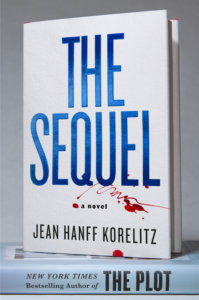
The Sequel
By Jean Hanff Korelitz
Once you finish The Plot, be sure to get your hands on its highly anticipated follow-up, appropriately called The Sequel. Jean Hanff Korelitz continues her skewering of the mercurial publishing world, shifting focus to Jake’s wife, Anna Williams-Bonner, as she embarks on her own publishing journey. We don’t want to give away any spoilers for The Plot, so we’ll just say that you don’t want to miss this clever and suspenseful sequel as Anna rides high on the wave of her husband’s literary success and takes control of her own narrative.
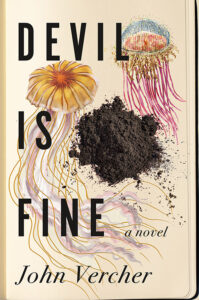
Devil Is Fine
By John Vercher
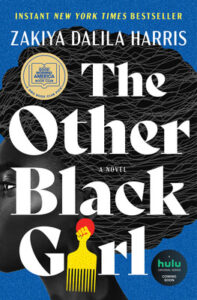
The Other Black Girl
By Zakiya Dalila Harris
It’s no secret that the publishing world lacks diversity. In The Other Black Girl, Zakiya Dalila Harris sends up not only the highs and lows of being an assistant at the start of your publishing career but the frustrations of navigating the office as a person of color. When 26-year-old Nella Rogers, formerly the only Black employee at Wagner Books, meets the new assistant, Hazel, she’s thrilled to have someone to commiserate with over the racial microaggressions and loneliness she’s experienced at work. Soon, however, unsettling developments begin to occur — like finding a note on her desk telling her to leave her job, or watching as Hazel ascends to become her boss’s new favorite assistant. Is Hazel what she seems, or is something nefarious going on?
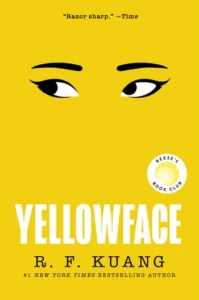
Yellowface
By R. F. Kuang
You could think of this highly acclaimed satire from fantasy author R. F. Kuang as The Plot meets The Other Black Girl: a razor-sharp psychological thriller that delves into race, fame, and literary rivalry. The novel is told from the perspective of June Hayward, a struggling white writer in her 20s who’s overwhelmed by the jealousy she feels toward her Asian American friend Athena Liu, a gorgeous wunderkind and darling of the literary world. One night as they’re toasting Athena’s latest success, Athena dies in a freak accident, leaving behind a manuscript about the untold story of Chinese laborers in World War I. June, desperate for a big break, takes the manuscript, reworks it for a white audience, and publishes it as her own. What follows is a bitingly funny satire of whiteness in publishing, cultural appropriation, and writing in the age of social media.

Erasure
By Percival Everett
Even if you haven’t yet read Percival Everett’s scathing and uproarious critique of the publishing world’s obsession with marketing Black trauma, you may have seen the novel’s award-winning film adaptation, American Fiction. Erasure, published in 2001, is as relevant as ever, following, like many books on our list, a writer struggling to find success. Infuriated by the popularity of Juanita Mae Jenkins’s exploitative debut novel, We’s Lives in Da Ghetto, Thelonious “Monk” Ellison pens a parody called My Pafology under a pseudonym. The book is meant to be a lark — but then My Pafology becomes a runaway bestseller. Stunned by the public’s response, yet unable to turn down his newfound literary success, Monk uneasily navigates the consequences of his unexpected achievements.
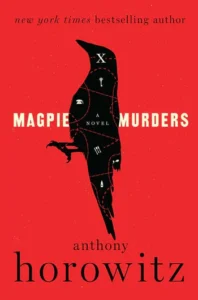
Magpie Murders
By Anthony Horowitz
Anthony Horowitz’s Magpie Murders is two narratives in one, a clever story within a story. The first is the latest mystery tale written by famed author Alan Conway. Susan Ryeland, Conway’s editor at Cloverleaf Books, sits down to review his latest whodunit. The closer she reads, however, the more she begins to suspect that a second mystery is nested inside Conway’s manuscript, one in which the stakes are truly life or death. A love letter to Agatha Christie-esque whodunits and the murder mystery genre, and a send-up of the cutthroat nature of the publishing industry, Magpie Murders is a crafty, propulsive read.
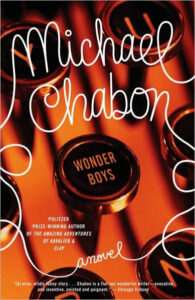
Wonder Boys
By Michael Chabon
Adapted into a film starring Michael Douglas, Wonder Boys is one of Michael Chabon’s most celebrated works. The book features a cast of complicated bookish types, like Grady Tripp, a once wildly successful novelist now stuck in the middle of writing his way-too-long second book (also called Wonder Boys), and his student James Leer, an aspiring writer obsessed with the ways in which Hollywood destroys people. The intertwined stories of Grady and James, together with those of an assortment of oddball editors and fellow writers, offer a cutting portrait of desire and fame, both personal and literary.
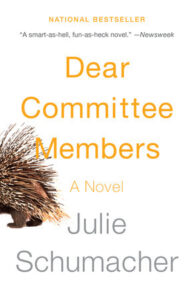
Dear Committee Members
By Julie Schumacher
A send-up not only of the publishing world but of academia and the humanities, Dear Committee Members is an epistolary novel that unfolds through a series of recommendation letters written by creative writing professor Jason Fitger. An aging academic at a modest liberal arts college, Dr. Fitger weathers all manner of indignities through the letters he’s asked to write, from departmental budget cuts and his stalled writing career to passive-aggressive classroom frustrations. We highly recommend you pick up Julie Schumacher’s wry workplace comedy about the woes and absurdities of the scholarly writing life.
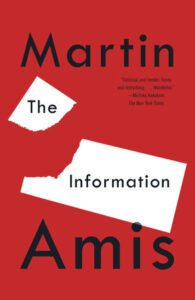
The Information
By Martin Amis
Another darkly funny warning about the often-dangerous allure of fame, The Information tells the story of Richard Tull, a washed-up novelist plagued with envy over his friend Gwyn Barry’s success. He decides his only recourse is to uncover information that will lead to Gwyn’s downfall. Unfortunately for Richard and Gwyn, a pair of criminals is stalking them both. Martin Amis’s thrilling literary fiction account of rivalry, success, and middle-aged frenemies will have you laughing out loud and gasping in surprise.

The Writing Retreat
By Julia Bartz
We end our list of satire books set in the publishing world with another literary psychological thriller that will keep you guessing until the end. The Writing Retreat starts with a young novelist who is invited to an exciting and exclusive writers’ retreat that quickly turns from a dream into a nightmare. Alex is about to give up on her writing career when she’s invited to a life-changing retreat by famed feminist horror writer Roza Vallos. Upon arrival, the attendees are told they have to write an entire novel over the next month, with the best of the bunch receiving a million-dollar publishing deal. Then things start to take a dark turn. Alex must figure out what’s going on or risk a fate worse than literary failure. Julia Bartz’s suspenseful novel explores the dark side of publishing and the universal yearning to achieve your dreams and have your story heard.
Share with your friends
Related Articles
Celadon delivered
Subscribe to get articles about writing, adding to your TBR pile, and simply content we feel is worth sharing. And yes, also sign up to be the first to hear about giveaways, our acquisitions, and exclusives!
Celadon delivered
"*" indicates required fields
